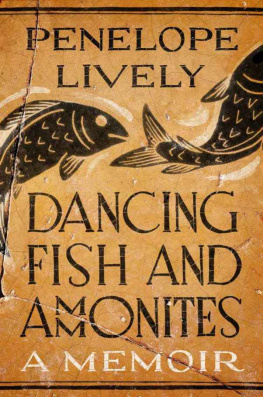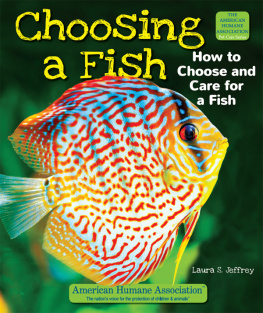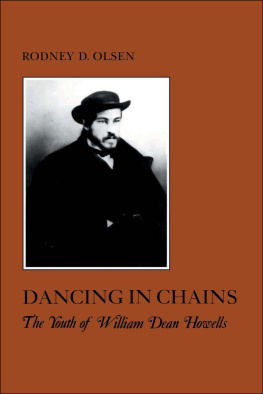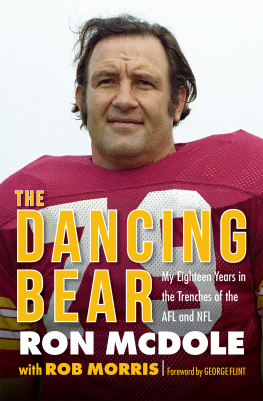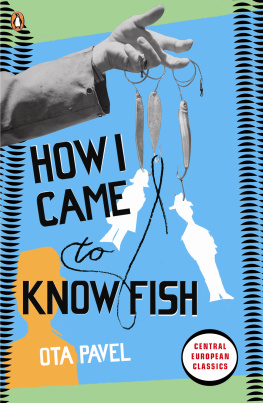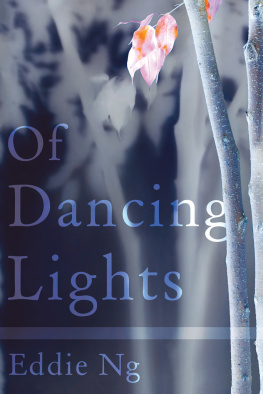Dancing Fish and Ammonites
Penelope Lively is the author of many prizewinning novels and short-story collections for both adults and children. She has twice been short-listed for the Booker Prize: once in 1977 for her first novel, The Road to Lichfield , and again in 1984 for According to Mark . She later won the 1987 Booker Prize for her highly acclaimed novel Moon Tiger . Her other books include Going Back ; Judgement Day ; Next to Nature , Art ; Perfect Happiness ; Passing On ; City of the Mind ; Cleopatras Sister ; Heat Wave ; Beyond the Blue Mountains , a collection of short stories; Oleander , Jacaranda , a memoir of her childhood days in Egypt; Spiderweb ; her autobiographical work A House Unlocked ; The Photograph ; Making It Up ; Consequences ; Family Album , which was short-listed for the 2009 Costa Novel Award; and How It All Began . She is a popular writer for children and has won both the Carnegie Medal and the Whitbread Award. She was appointed CBE in the 2001 New Years Honours List, and was made a dame in 2012. She lives in London.
By the same author
FICTION
Going Back
The Road to Lichfield
Nothing Missing But the Samovar and Other Stories
Treasures of Time
Judgement Day
Next to Nature, Art
Perfect Happiness
Corruption and Other Stories
According to Mark
Pack of Cards: Stories 19781986
Moon Tiger
Passing On
City of the Mind
Cleopatras Sister
Heat Wave
Beyond the Blue Mountains
Spiderweb
The Photograph
Making It Up
Consequences
Family Album
How It All Began
NON-FICTION
The Presence of the Past: An Introduction to Landscape History
Oleander, Jacaranda: A Childhood Perceived
A House Unlocked

JACK in memory
VIKING
Published by the Penguin Group
Penguin Group (USA) LLC
375 Hudson Street
New York, New York 10014

USA | Canada | UK | Ireland | Australia | New Zealand | India | South Africa | China
penguin.com
A Penguin Random House Company
Published by Viking Penguin, a member of Penguin Group (USA) LLC, 2014
Copyright 2013 by Penelope Lively
Penguin supports copyright. Copyright fuels creativity, encourages diverse voices, promotes free speech, and creates a vibrant culture. Thank you for buying an authorized edition of this book and for complying with copyright laws by not reproducing, scanning, or distributing any part of it in any form without permission. You are supporting writers and allowing Penguin to continue to publish books for every reader.
First published in Great Britain as Ammonites and Leaping Fish by Fig Tree, an imprint of Penguin Books Ltd.
Photographs by Anna Lively
Grateful acknowledgment is made for permission to reprint excerpts from the following copyrighted works:
Book Ends by Tony Harrison ( Collected Poems , Penguin Books, 2007) reprinted by permission of Tony Harrison.
The Sense of an Ending by Frank Kermode (2000) reprinted by permission of Oxford University Press, USA.
The Long Life by Helen Small (2007) reprinted by permission of Oxford University Press, USA.
Having It So Good: Britain in the Fifties by Peter Hennessy (Penguin Books, 2007). Copyright Peter Hennessy, 2006. Reprinted by permission of Penguin Books Ltd.
Excerpts from In a Room and a Half from Less Than One: Selected Essays by Joseph Brodsky (Farrar Straus Giroux, 1986).
Library of Congress Cataloging-in-Publication Data
Lively, Penelope, 1933
Dancing fish and ammonites : a memoir / Penelope Lively.
pages cm
ISBN 978-0-698-14014-1
1. Lively, Penelope, 1933 2. Novelists, English20th centuryBiography. 3. English literatureWomen authorsBiography. 4. Autobiographical memory. I. Title.
PR6062.I89Z46 2014
823'.914dc23
[B]
2013036818
Penguin is committed to publishing works of quality and integrity. In that spirit, we are proud to offer this book to our readers; however, the story, the experiences, and the words are the authors alone.
Version_1
Contents
Preface
This is not quite a memoir. Rather, it is the view from old age.
And a view of old age itself, this place at which we arrive with a certain surprise ambushed, or so it can seem. The view from eighty, for me. One of the few advantages of age is that you can report on it with a certain authority; you are a native now, and know what goes on here. That, and the backwards glance the identifying freight of a lifetime.
A lifetime is embedded; it does not float free, it is tethered to certain decades, to places, to people. It has a context; each departure leaves a person-shaped void the absence within a family, the presence lost within a house, in a community, in society itself. We go, but hang in for a while in other peoples heads something we said, something we did; we leave a ghostly imprint on our backdrop. A very few people go one further and are distilled into a blue plaque on a building.
I began on a spring morning in the Anglo-American Hospital in Zamalek, which was a residential suburb on Gezira, the island in Cairos Nile; 17 March 1933. Elsewhere, things were going on that would lead to turmoil in North Africa in a few years time; my parents lives would be affected, and mine, but they were comfortably oblivious that morning, and I was tucked up in a crib, the feet of which stood in tin trays of water, because there had been instances of ants getting at newborn babies.
Toward the end of my own stint I find myself thinking less about what has happened to me but interested in this lifetime context, in the times of my life. I have the great sustaining ballast of memory; we all do, and hope to hang on to it. I am interested in the way that memory works, in what we do with it, and what it does with us. And when I look around my cluttered house more ballast, material ballast I can see myself oddly identified and defined by what is in it: my life charted out on the bookshelves, my concerns illuminated by a range of objects.
These, then, are the prompts for this book: age, memory, time, and this curious physical evidence I find all around me as to what I have been up to how reading has fed into writing, how ways of thinking have been nailed.
There can be a certain detachment about it; the solipsism of writing about oneself tempered by the more compelling interest of general concerns what it means to be old, what the long view does to us, or for us, how we mutate with our times. But a report from the front line has to be just that; this is my old age, so I have to get personal, as well as consider the wider implications of where I am now. Which is something I have not done before; like, I think, most people, I have not paid too much attention to old age. To individuals, yes family, friends. But the status has not been on my radar. Give up my seat on the bus of course; feign polite attention to some rambling anecdote; raise my voice, repeat myself with patience. Avoid, occasionally, I fear: that hazard light worn by the old slow, potentially boring, hard going. Now that I wear the light myself, I am nicely aware of the status. This is a different place. And since I am there, along with plenty of my friends, the expedient thing seems to be to examine it. And report.
We are many today, in the Western world: the new demographic. I want to look at the implications of that, at the condition, at how it has been perceived. And then at the compelling matter of memory the vapor trail without which we are undone.
And my own context the context of anyone my age. The accompanying roar of the historical process. I want to remember what those events felt like at the time, those by which I felt most fingered the Suez crisis, the Cold War, the seismic change in attitudes of the late twentieth century and see how they are judged today, with the wisdoms of historical hindsight.
Next page
